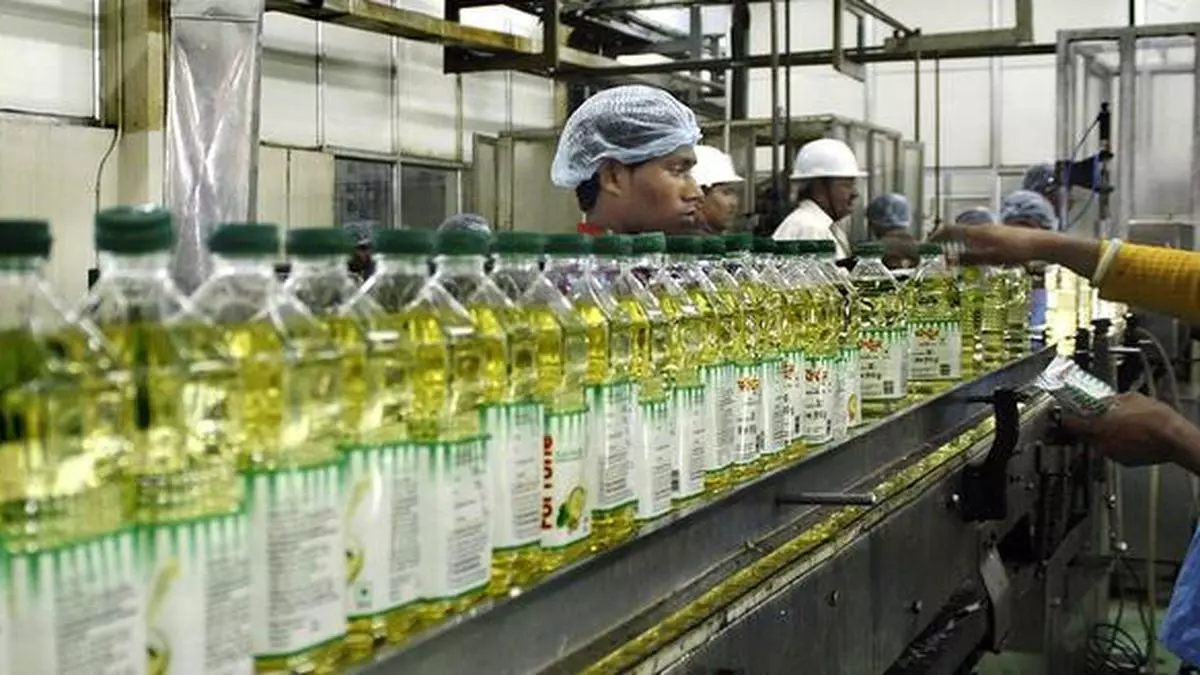Govt assessing option of dynamic duty after import cess hike in edible oils, triggered by low soyabean prices
The government is believed to be assessing whether India should adopt dynamic duty structure to ensure imported oils do not get sold at any point of time below reasonable rates of domestically produced edible oils, after factoring the minimum support prices of oilseeds.
This follows the developments recently where India hiked import duties on edible oil duty, keeping in view the sowing of domestic oilseeds and to ensure an assured and better returns to farmers to sustain their interest in growing the crop which is crucial for the success of the proposed ₹6,800-crore national oilseeds mission, likely to be rolled out soon.
However, as there has been an immediate reaction in Indonesia which has reportedly announced a plan to reduce its export duty early next month, the government is now working on an alternative plan which is to adopt a dynamic duty structure to ensure imported oils do not get sold at any point of time below reasonable rates of domestically produced edible oils.
“Ideally, no oil should come at lower than the cost of production of any edible oil in India based on the conversion costs at the rate of MSP of oilseeds. The domestic edible oil processors could not compete with cheaper edible oils if they had to buy oilseeds at MSPs and hence farmers were not getting a reasonable rate and often seen selling below MSP,” a senior official said.
At the same time he agreed that there is a need to take swift decision also in India the way Indonesia reacted with a likely cut in export duty on palm oil soon. Sources said that the agriculture ministry was pushing for a duty hike for more than one year and the government was not in a mood to accept the suggestion fearing increase in retail prices in an election year.
The government on September 13 increased the duty on crude palm, soyabean and sunflower oil to 20 per cent from ‘nil’ and the levy on refined palm, soyabean and sunflower oils to 32.5 per cent from 12.5 per cent. After cess, the imported crude oils will be levied at 27.5 per cent and refined varieties at 35.75 per cent.
Though Chouhan was said to have favoured 40 per cent hike, the government finally accepted a 20 per cent hike saying the total duty including cess on refined imported oils comes to nearly 36 per cent, sources said.
It was imperative for the government to raise edible oil duty to convince farmers for increasing the area when there is a plan to launch National Mission on Oilseeds, the sources said.
As reported by business line earlier, the National Mission on Oilseeds will target to raise domestic oilseeds production by additional 2-3 million tonnes (mt) by 2025-26 from current about 40-41 mt in order to lower India’s import dependency on edible oils.
There will be a long-term programme as well as short-term programme. Since the import dependency on edible oils has come down to about 56 per cent in 2022-23 oil year (November-October) from a high of over 63 per cent in 2015-16, the challenge is how to further reduce it by raising production of all types of domestic sources, despite limitation on area, sources said.
It is learnt that the government targets to raise edible oil production from domestic sources to 14.5 mt, including 1.1 mt of crude palm oil (CPO) by 2025-26 oil year from 12.69 mt in 2022-23.
Besides the oilseeds mission plan, the drop in soyabean prices in Madhya Pradesh and other states turning a political issue also weighed behind the decision on import duty hike. The Congress party in MP raised the soyabean price issue and tried to corner union agriculture minister Shivraj Singh Chouhan, who is a former chief minister of the state.
India’s import bill of edible oils dipped to ₹1.38 lakh crore in 2022-23 oil year from a record ₹1.56 lakh crore in 2021-22. The import was estimated at ₹1.17 lakh crore in 2020-21.
